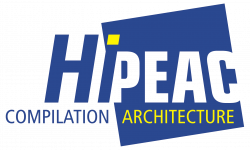HiPEAC Vision 2017 declares it ‘time to reinvent computing’
A major new report authored by HiPEAC, the European Network on High Performance and Embedded Architecture and Compilation, states that the necessary shifts in the ways in which we design, make and use computers in all their forms will amount to a total reinvention of computing. The authors of the HiPEAC Vision 2017 argue that we are entering a ‘Centaur Era’, an age in which the borders between the traditional roles of man and machine will start to be erased. ‘Computers as we know them are disappearing from view,’ asserts Koen De Bosschere, Professor at the Engineering Faculty of Ghent University, Belgium, and Coordinator of the HiPEAC network. ‘The evolution from desktop PC will not stop at smartphone and tablet: the devices and systems that will allow us to automate key infrastructures, such as transport, power grids and monitoring of medical conditions, are bringing us into the age of artificial intelligence. This does not mean man-sized robots, but smart devices that we program and then interact with, such as intelligent personal assistants and self-driving vehicles.’ Funded by the European Commission’s Horizon 2020 research and innovation programme, HiPEAC is a community of expertise in the very building blocks of computing systems: the ‘architecture’ and ‘compilation’ after which the network is named. ‘We find ourselves at a crossroads, as our current way of making computers and their associated software is reaching the limitations of what they can achieve in an ever-changing environment,’ says lead editor of the Vision, Marc Duranton of CEA, France. ‘What we now describe as ‘cyber-physical systems’ – such as self-driving cars – entangle the cyber and physical worlds. The increasing use of the artificial intelligence required to make them work means that we, the humans, really need to invent solutions so that we can trust systems and develop better ways to cope with the challenges of safety, security, privacy, energy efficiency and increasing complexity. It really is the right time to reinvent computing.’ Although the challenges Duranton defines might seem overwhelming, the Vision lays out a set of key recommendations to ensure that Europe uses technology to its advantage, including in the creation of skilled employment. Indeed, securing and strengthening the position of Europe lies at the heart of the report. The societal challenges that are making the news in 2017, including the ageing population and cybersecurity breeches, can and should be addressed by the European computing systems community. The value of the community’s interest in matters of hacking, data breeches and identity theft is evident. Yet the Vision points out that technology can also play a role in supporting Europe towards a better future on a number of fronts, whether it be smart devices helping older people to monitor and manage chronic diseases or smart grids allowing domestic appliances to temporarily reduce electricity use when the wind drops and turbines produce less clean power. The HiPEAC Vision 2017 is available for free download at www.hipeac.net/vision.
Keywords
Artificial Intelligence, connectivity, IoT, digitisation, cybersecurity, energy efficiency
Countries
Belgium



